A peculiar perforated canopy with moving mirrored discs popped up in Dubai this week, choreographing shadows onto the ground and shielding pedestrians from the region’s harsh sun. But it’s not some kinetic art installation or just an ordinary canopy. Dubbed Sun&Shade, it’s the first working prototype of a digital shading structure developed by Carlo Ratti Associati, in collaboration with Dubai’s Museum of the Future. And the humble sunflower, which turns to face the sun in early growth stages, was its main inspiration.
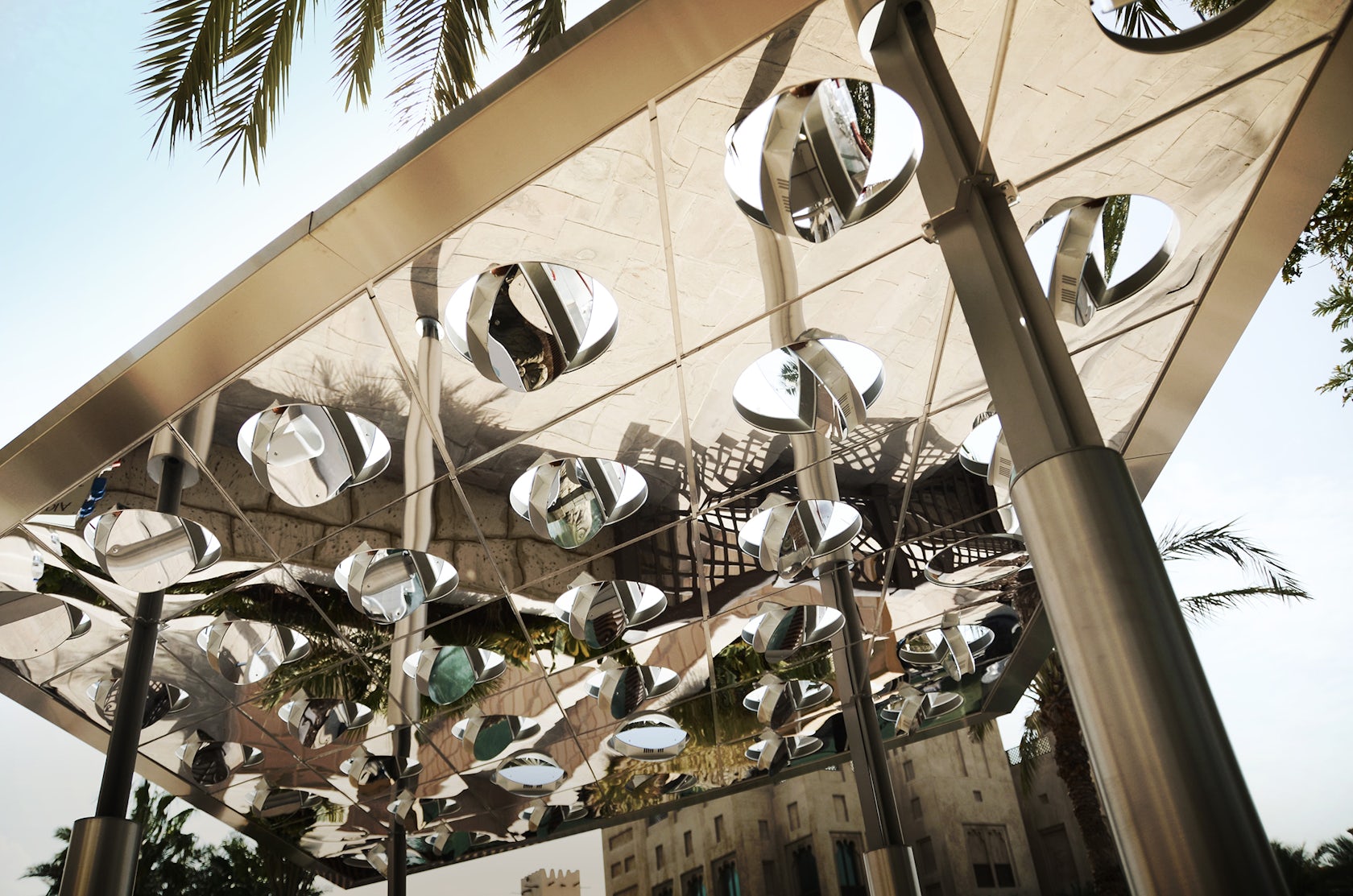
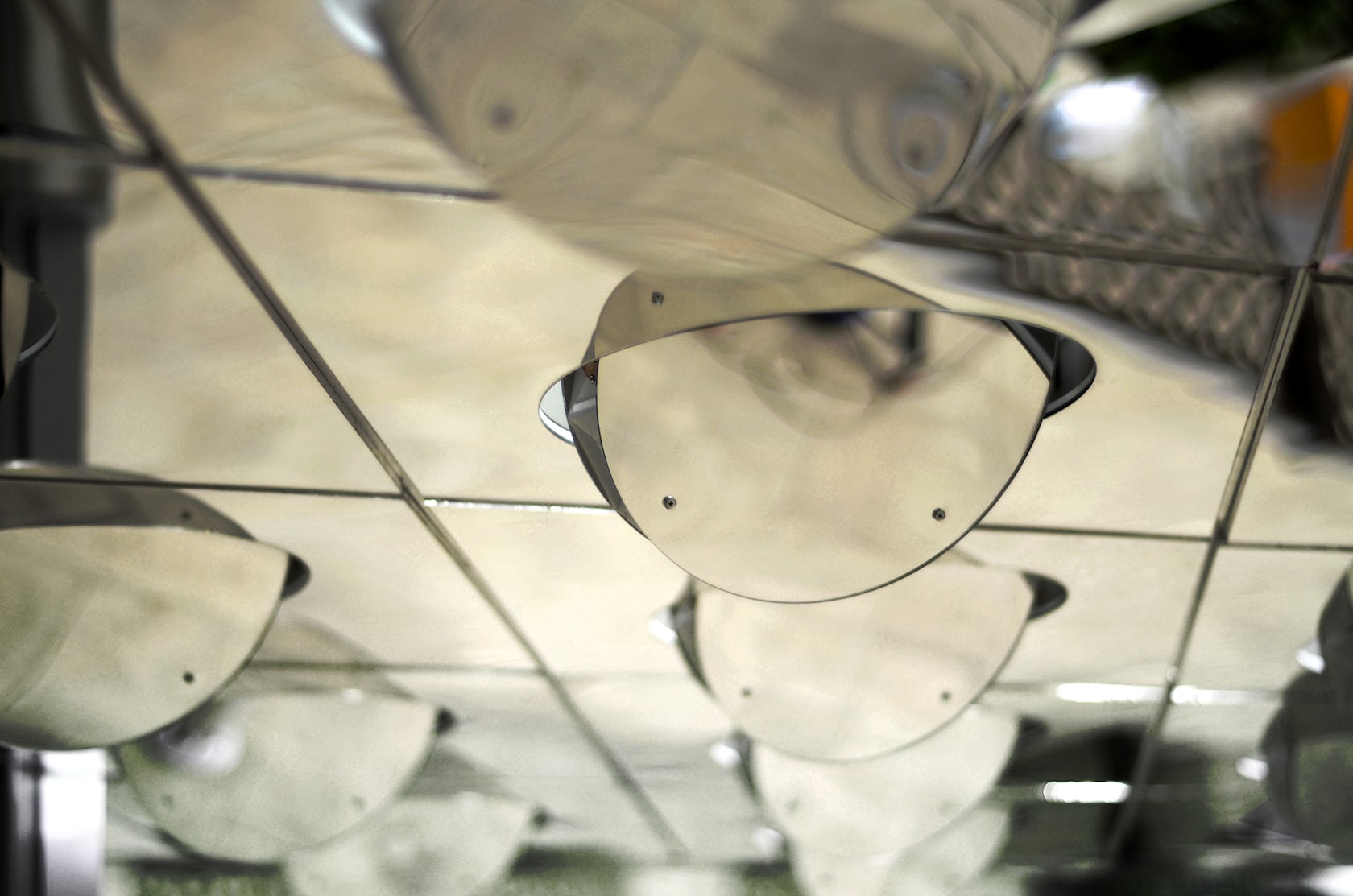
The dynamic canopy debuted to coincide with the Museum of the Future’s new exhibition “Reimagining Climate Change,” which proposes new ideas for combating or coping with the consequences of climate change. Its roof is perforated with 36 apertures in which pivoting mirror discs are precisely fitted. Taking cues from the sunflower, these mirrors track the sun throughout the day and turn on their double axis to deflect the rays. The deflection, in combination with the perforations, helps to shade and cool the space underneath the canopy.
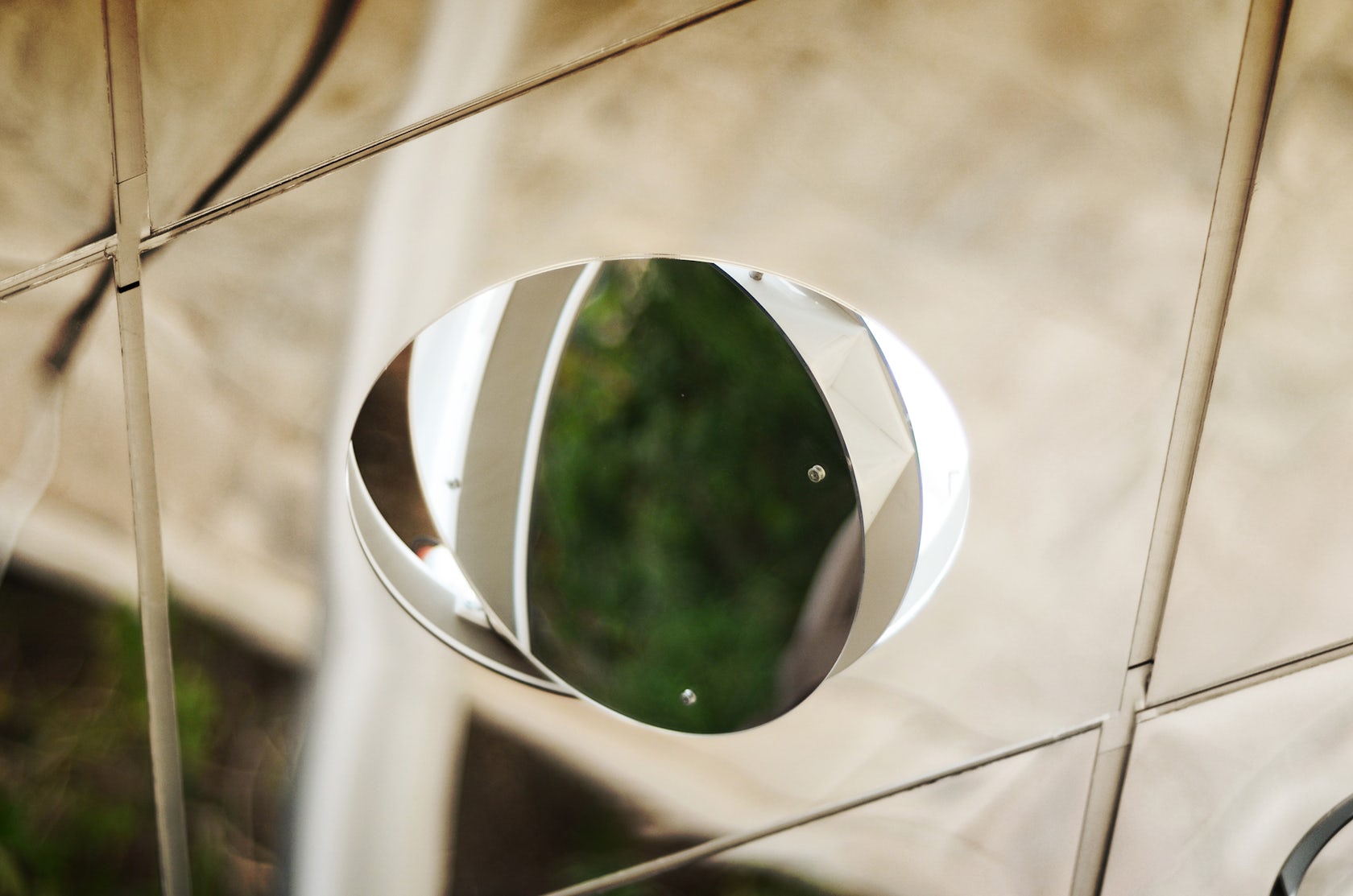
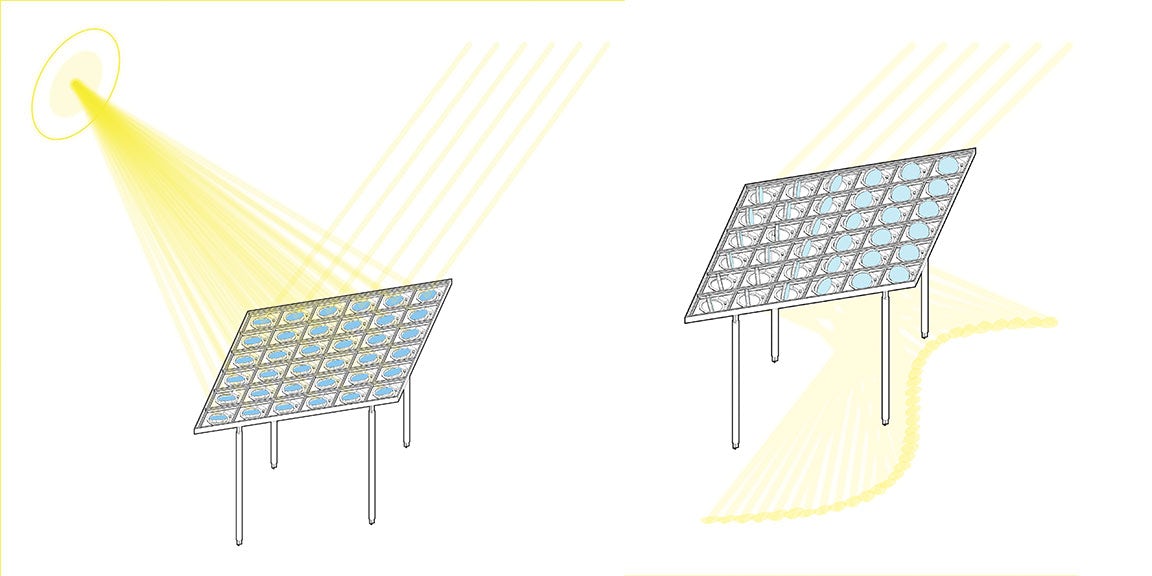
“In developing Sun&Shade, we were inspired by the Middle Eastern tradition of shading in architecture and public space,” explained Carlo Ratti, the founding partner of his eponymous firm. “Sun&Shade aims to bring this concept to the next level, allowing shading to be digitally controlled.”
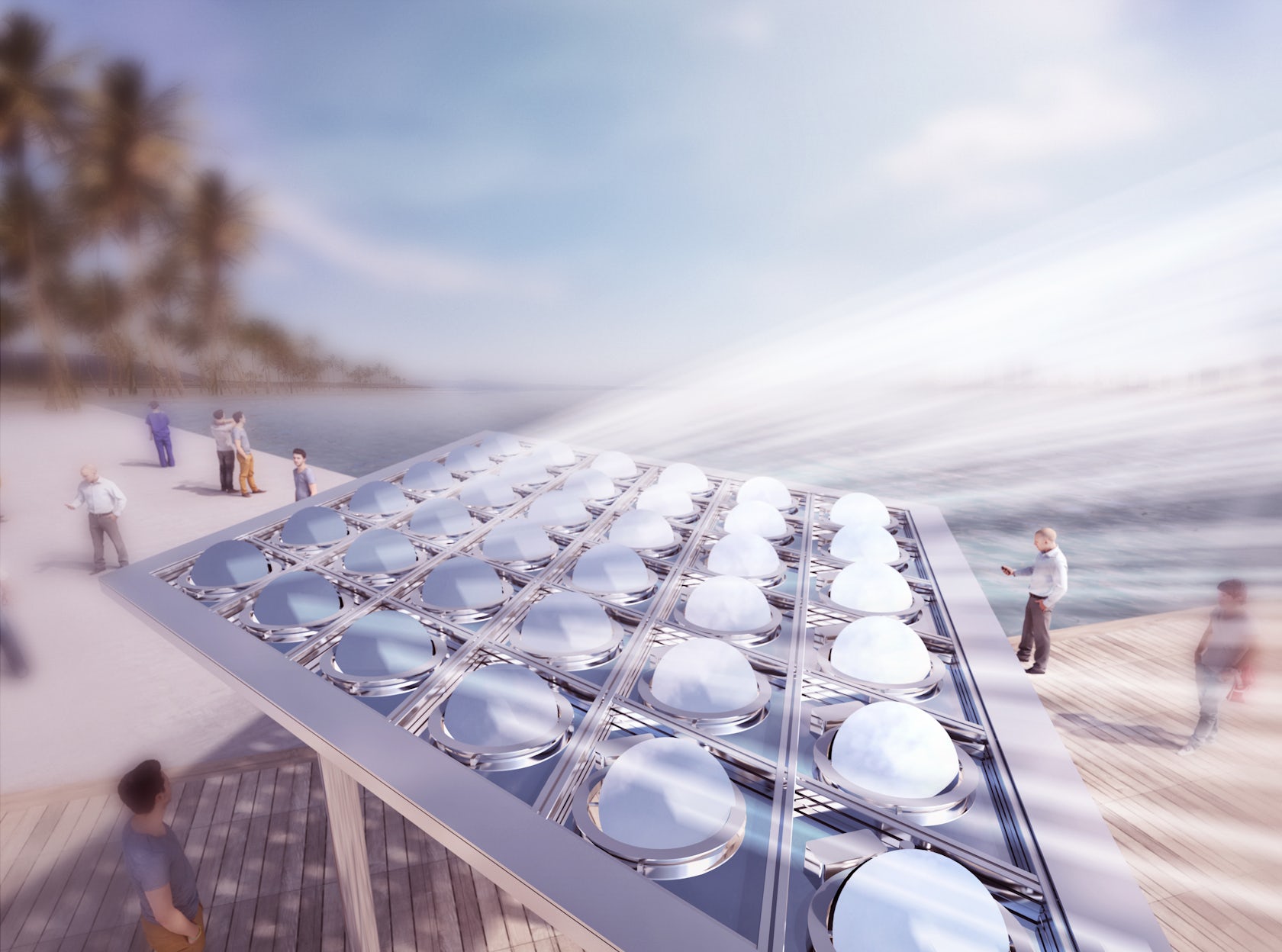
Rendering
But, the deflected rays have another use: They are concentrated at a safe distance from people and toward a photovoltaic receiver for generating electricity.
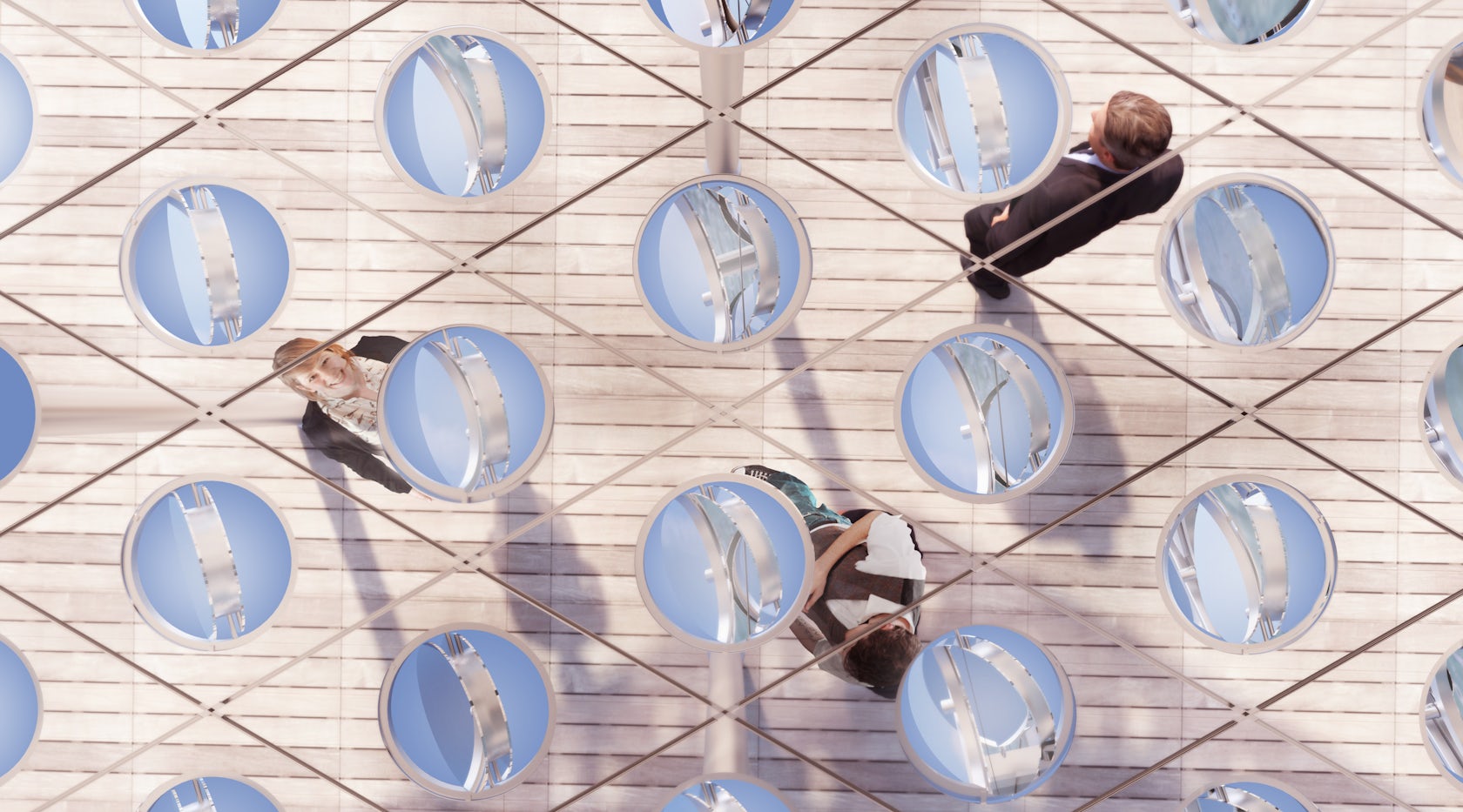
Rendering
“The canopy is half power infrastructure, half architecture for public space,” commented Antonio Atripaldi, a project manager at Carlo Ratti Associati. “With its hybrid nature, it allows us more control over our surroundings. In the near future, we can imagine extending the canopy to cover streets or open squares in hot, arid climates … Conversely, in a cold place, we could concentrate rays underneath the canopy to heat the environment.”

Rendering
In addition to Carlo Ratti Associati and the museum, Sun&Shade was also developed in collaboration with climate-engineering firm Transsolar, digital design studio Atmos, mechanical and electronic engineering firm FGM Works and software engineer TonicMinds.
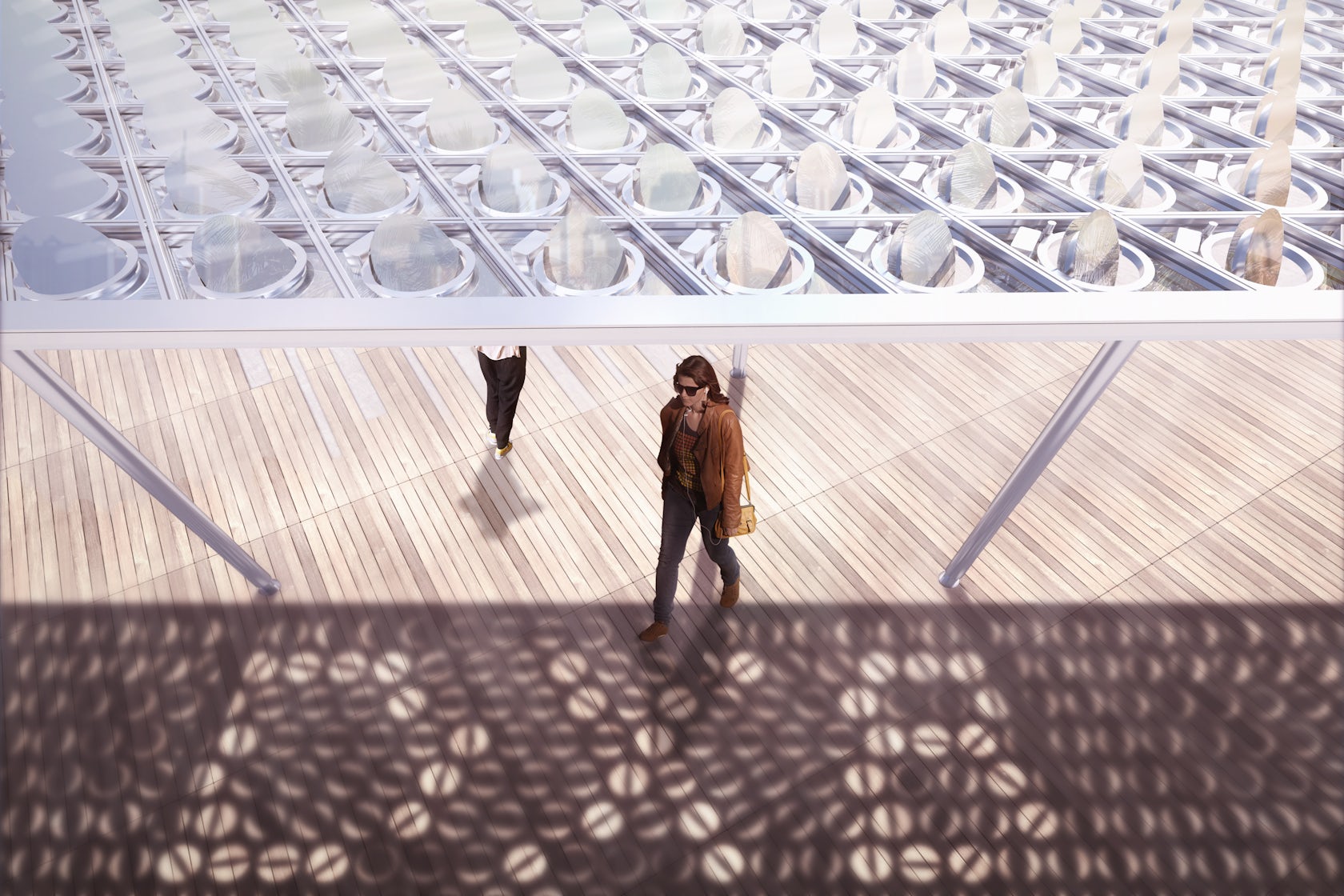
Rendering




